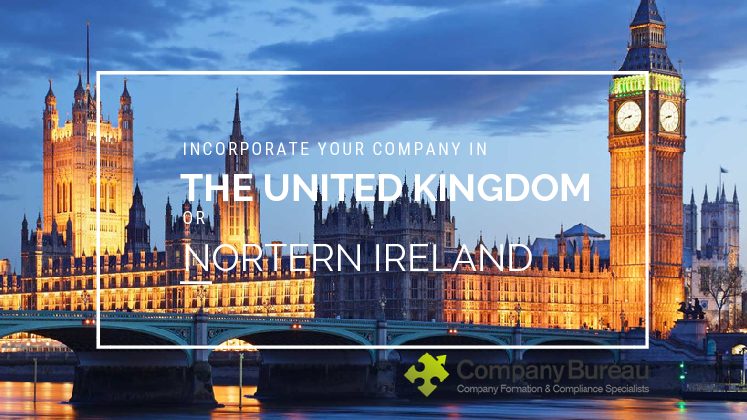Philip Hayden, 12th July 2018
With the current uncertainty surrounding Brexit, there is no better time to incorporate a company in the UK. We recommend a United Kingdom, Northern Ireland company to secure a foothold within this fluctuating market. Setting up an entity in this region can help to avoid sharp changes in the strength of the Pound Sterling and what could be a complete alteration in how the United Kingdom interacts with the global marketplace.
Under the Companies Act 2006, a UK Limited Company is defined as per the below:
- A separate legal entity from the people who run it
- Must have separate finances from the people who run it
- Any profits made after paying tax can be retained
The Companies Act 2006 also allows for companies to be incorporated in three distinct administrative locations – England & Wales, Scotland and Northern Ireland
What do I need to set up a Northern Ireland Company?
The following key items apply to UK Limited Companies in all jurisdictions; England & Wales, Scotland and Northern Ireland.
Company Name
Firstly, the Company must find a suitable name under which to register. Unlike some other jurisdictions, the Companies House in the UK is more flexible with variations of names that currently exist. However, names that are seen as too similar to or the same as those already registered will not be allowed.
Registered Office
Whether the Company selects a location on mainland UK or Northern Ireland, a registered address must be selected. It should be a physical address within the selected location. Home addresses can be used if required and the automatic Corporation Tax issuance and official communication will be sent there by default.
Officers
A Northern Ireland Company can have a minimum of one Director who can also act as the sole Shareholder. This can be increased as needed. The Companies Act 2006 provides that a Director can use a correspondence address that is different from their normal residential location allowing for greater privacy if required. The Company Secretary is optional for a UK Limited Company but can be appointed to provide an advisory role to the directors and board. All officers must be a minimum age of 16. At present, officers can be from outside of the UK in all cases; as yet there is no indication that this will change under Brexit. Any of the officers of the company can be classified as People with Significant Control (PSC).
Shares
A Northern Ireland Company retains liability limited to the amount of shares it has in issue; meaning that only the amount of money held within the Company is open to creditors, not personal funds. There should be a minimum of one Shareholder who will, through a dividend, be entitled to a share of the profits of the Company.
Objectives
The Northern Ireland Company can broadly set objectives based on the Standard Industry Classification (SIC) code it selects. The SIC code matches a certain industry or line of business. Multiple codes can be selected to give the Company a broad remit.
Additional Information
The Companies Act 2006 requires that a Company have a Memorandum and Articles of Association in place. This acts as a set of rules the Company can operate under and in most cases follows a standard model set by the Act.
A People with Significant Control (PSC) register is also required. This register details people who exert any kind of influence over the company, for example, Directors, Shareholders or other management.
What’s next?
Once you have all of this information in place or at least a general idea, you are ready to start a Northern Ireland Company or other United Kingdom Company Formation. Uk companies can be set up remotely and typically take 1-2 working days at most. Should you have any questions on the Companies Act 2006, a Northern Ireland Company, People with Significant Control (PSC) or indeed the likely business landscape following Brexit, don’t hesitate to contact us or call (+353) 1 6461625.
Disclaimer This article is for guidance purposes only. It does not constitute legal or professional advice. No liability is accepted by Company Bureau for any action taken or not taken in reliance on the information set out in this article. Professional or legal advice should be obtained before taking or refraining from any action as a result of this article. Any and all information is subject to change.
